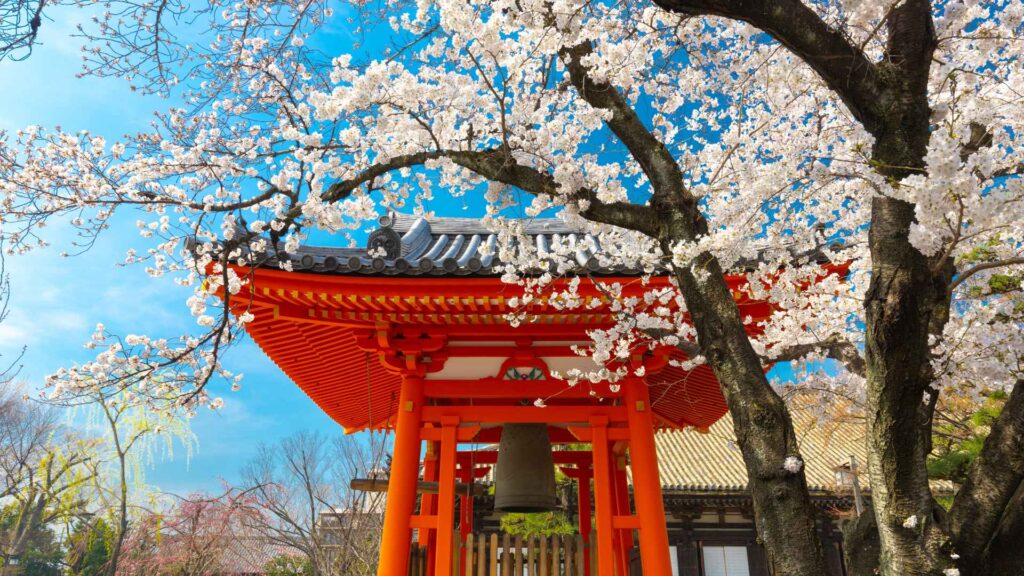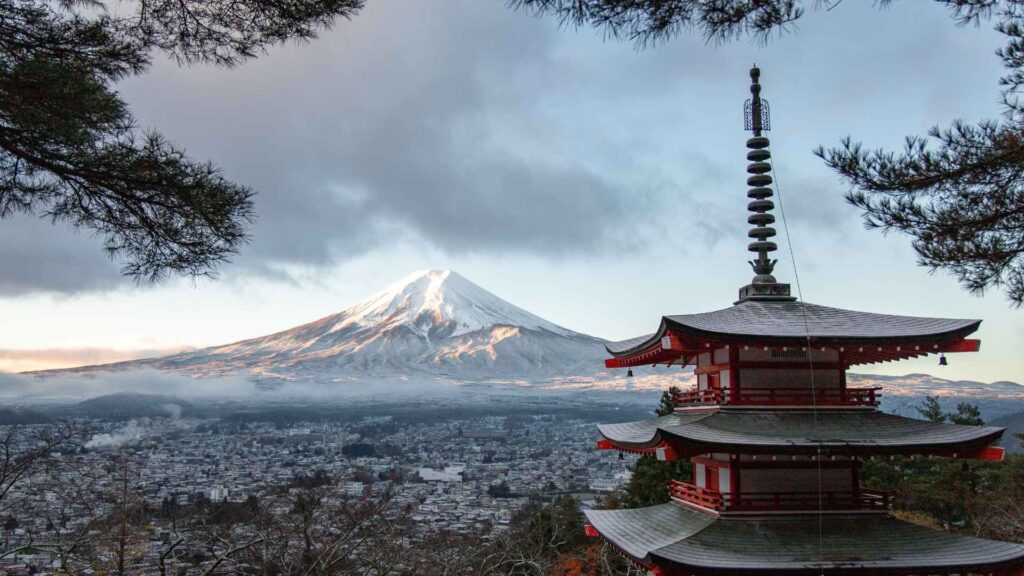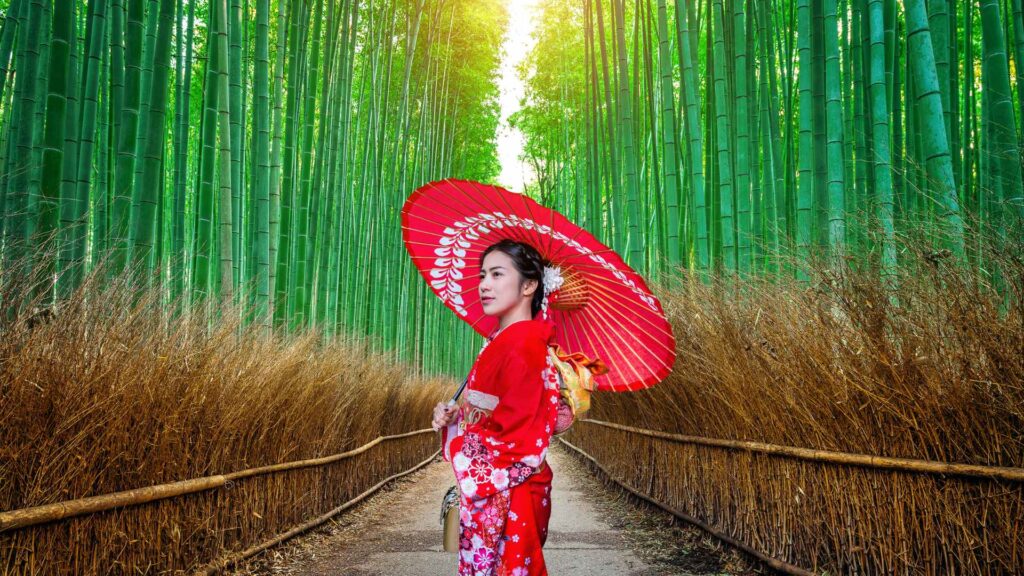Japan, the Land of the Rising Sun, is a captivating country known for its rich history, unique traditions, and groundbreaking innovations.
This ultimate guide dives into 145 fun facts about Japan, neatly categorized to entertain and inform, offering insights into one of the most fascinating nations on Earth.
Japanese Culture and Traditions
- Geisha, traditional Japanese entertainers, have been around since the 18th century and are skilled in classical arts, music, and dance.
- The Japanese tea ceremony, called “chanoyu,” is an ancient ritual emphasizing mindfulness and harmony.
- Bowing is a crucial part of Japanese etiquette, with different angles conveying varying degrees of respect.
- Japanese homes often have “tatami” flooring made of woven straw mats, used for sitting and sleeping.
- Hanami, or cherry blossom viewing, is a beloved springtime tradition dating back centuries.
- Sumo wrestling, Japan’s national sport, has roots tracing back over 1,500 years.
- Kimono, traditional Japanese attire, has deep cultural significance and is often worn on special occasions.
- Japan boasts a festival for almost every month, from snow festivals to lantern-lit celebrations.
- The concept of “wabi-sabi” reflects finding beauty in imperfection and impermanence.
- Traditional Japanese gardens are meticulously designed to mimic natural landscapes.
- The practice of Kintsugi involves repairing broken pottery with gold to celebrate flaws.
- Omotenashi, the Japanese spirit of hospitality, ensures exceptional guest service.
- Origami, the art of paper folding, originated in Japan and is used for ceremonies and recreation.
- Japanese New Year, or “Shogatsu,” involves unique customs like mochi-making and shrine visits.
- The Japanese believe in “kotodama,” the power of words to influence reality.

Japanese Food and Drink
- Sushi, one of Japan’s most famous dishes, dates back to the Edo period.
- Japan has over 300 unique KitKat flavors, including wasabi and sake.
- Ramen shops are ubiquitous in Japan, offering regional variations like miso and tonkotsu ramen.
- Matcha, finely ground green tea, is a staple in Japanese desserts and drinks.
- Takoyaki, or octopus balls, is a popular street food originated in Osaka.
- Japanese cuisine is recognized as an intangible cultural heritage by UNESCO.
- Mochi, a chewy rice cake, is a traditional snack enjoyed year-round.
- Kaiseki meals, a multi-course dining experience, emphasize seasonal ingredients.
- Wagyu beef is prized for its marbled texture and melts-in-your-mouth quality.
- Japan is the birthplace of instant noodles, invented by Momofuku Ando in 1958.
- Sake, Japan’s iconic rice wine, is brewed using ancient techniques.
- Bento boxes showcase the Japanese art of arranging food aesthetically.
- Okonomiyaki, a savory pancake, allows diners to customize toppings.
- Japan consumes over 5 million tons of rice annually, a staple in most meals.
- Fugu, or pufferfish, is a delicacy that requires skilled chefs due to its potential toxicity.

Nature and Wildlife
- Japan has over 6,800 islands, but only about 430 are inhabited.
- Mount Fuji, Japan’s tallest peak, is a sacred site and an iconic symbol.
- Japan is home to snow monkeys that bathe in hot springs during winter.
- The Japanese giant salamander is one of the largest amphibians in the world.
- Cherry blossoms, or “sakura,” bloom briefly, symbolizing the transient nature of life.
- Japan’s native deer, called “sika,” are often seen roaming Nara Park.
- Japan has three famous gardens: Kenrokuen, Korakuen, and Kairakuen.
- Bamboo forests, like the one in Arashiyama, are popular tourist attractions.
- Japanese koi fish symbolize perseverance and strength in adversity.
- The Sea of Japan hosts diverse marine life, from dolphins to giant squid.
- Japan’s firefly festivals celebrate the enchanting glow of these insects.
- Hokkaido is famous for its unique flora and fauna, including red foxes.
- The Tottori Sand Dunes are an unexpected desert-like landscape in Japan.
- Japan’s tropical Okinawa islands are home to coral reefs and rare marine species.
- Forests cover approximately 67% of Japan’s land area, making it lush and green.
Technology and Innovation
- Japan introduced bullet trains, or “shinkansen,” in 1964, revolutionizing travel.
- Robots are widely used in Japan, from hotels to healthcare.
- Japan is the largest producer of anime, a global phenomenon.
- QR codes were invented in Japan in 1994.
- Capsule hotels, first developed in Osaka, are an efficient lodging solution.
- The Tokyo Skytree is the tallest tower in the world at 634 meters.
- Japanese toilets are famous for their high-tech features like heated seats.
- The Walkman, the first portable music player, was created by Sony in 1979.
- Japan leads in earthquake-resistant architecture and technology.
- The first humanoid robot to speak, ASIMO, was developed by Honda.
- Akihabara is the hub of Japan’s electronic and gaming culture.
- The vending machine density in Japan is the highest worldwide, with unique items like ramen and fresh eggs.
- Japan is pioneering renewable energy, including floating solar farms.
- The Toyota Prius was the world’s first mass-produced hybrid car.
- Virtual YouTubers, or VTubers, originated in Japan and are reshaping online content.

Pop Culture and Entertainment
- Studio Ghibli, Japan’s famous animation studio, has won numerous global awards.
- Manga is consumed by all age groups, covering diverse genres.
- Japanese idols are an integral part of the music and entertainment industry.
- Karaoke, invented in Japan, remains a beloved pastime.
- J-pop, short for Japanese pop, dominates the music charts in Asia.
- Pokémon, one of the world’s biggest franchises, originated in Japan.
- The game Go, over 2,500 years old, is still popular in Japan.
- Pachinko parlors are common gaming establishments across Japan.
- Cosplay, the art of dressing as fictional characters, began in Japan.
- Japanese horror films are known for their unique psychological elements.
- Japan has unique TV shows like obstacle course game series and food challenges.
- Godzilla, the iconic monster, debuted in a 1954 Japanese film.
- Japanese arcades, or game centers, feature cutting-edge gaming technology.
- Yokai, supernatural creatures from Japanese folklore, inspire modern stories.
- The Shonen Jump magazine has launched countless popular manga series.
Bonus Fun Facts About Japan
- Japan has vending machines for umbrellas, bananas, and hot meals.
- The Japanese language has no plural form, making it unique.
- Tokyo has more Michelin-starred restaurants than any other city.
- Anime accounts for over 60% of the world’s animation-based entertainment.
- Japan’s life expectancy is among the highest globally.
- The country has a “crying baby sumo” contest to encourage healthy babies.
- Square watermelons are grown in Japan for aesthetic purposes.
- Japanese trains are punctual to the second.
- Japanese schools teach manners and cleaning duties as part of the curriculum.
- The world’s oldest company, Kongo Gumi, was established in Japan in 578 AD.
- Japan has cat islands, where felines outnumber humans.
- Sleeping at work is acceptable in Japan as a sign of dedication.
- Melon auctions in Japan have fetched prices as high as $25,000.
- The Japanese calendar is based on the reign of emperors.
- A single Shinto shrine can house over 1,000 gods.
- Japanese kanji characters were adopted from Chinese but developed unique meanings and pronunciations.
- The country has more than 5.5 million vending machines, selling everything from fresh eggs to bouquets.
- The Japanese Alps span three ranges and offer breathtaking hiking and skiing opportunities.
- The Yamanote Line in Tokyo is a loop train line that connects many major neighborhoods.
- Japanese hot springs, or “onsen,” are believed to have healing properties due to their mineral content.
- Japan’s snow festivals, like Sapporo’s, showcase intricate ice sculptures and attract millions of visitors.
- Capsule toys called “gachapon” are hugely popular and collectible among all ages.
- Japan is home to the world’s shortest escalator, standing just 32.8 inches tall in Kawasaki.
- The country celebrates “White Day” on March 14, where men give gifts to women in return for Valentine’s Day chocolates.
- Japanese samurai swords, or katana, are renowned for their craftsmanship and sharpness.
- Mount Takao, close to Tokyo, is a popular spot for city dwellers to enjoy nature and traditional food.
- The Shinkansen bullet trains have a cleaning crew nicknamed the “7-minute miracle team” for their speed and precision.
- Japan celebrates Children’s Day on May 5, featuring colorful carp-shaped streamers called “koinobori.”
- There’s a town named Shingo that claims to house the tomb of Jesus Christ.
- Japanese zen gardens are meticulously designed to create serenity and contemplation.
- Japan is one of the safest countries, with extremely low crime rates.
- Public baths, or sento, are common and often include separate areas for men and women.
- The Edo period saw the creation of ukiyo-e, or woodblock prints, depicting everyday life and landscapes.
- In Tokyo’s Odaiba district, you can find a life-sized Gundam robot statue.
- Japan experiences over 1,500 earthquakes annually, most of them minor.
- Japanese toilets sometimes play music or nature sounds to mask noise.
- Many streets in Japan lack names, with locations often identified by block numbers instead.
- Tipping is considered rude in Japan; excellent service is simply part of the culture.
- Kyoto has over 1,600 Buddhist temples and hundreds of Shinto shrines.
- The Henn-na Hotel in Japan is staffed entirely by robots.
- Japanese “cat cafes” offer visitors the chance to relax while playing with resident felines.
- Japan is the only country with an emperor, currently Emperor Naruhito.
- The Tanabata Festival celebrates the meeting of two star-crossed lovers, Vega and Altair.
- Japanese melonpan bread resembles a melon but doesn’t taste like one.
- Himeji Castle, a UNESCO World Heritage Site, is considered the finest surviving example of traditional Japanese architecture.
- Train stations in Japan play unique jingles as departure alerts.
- Kyoto’s Arashiyama Monkey Park allows visitors to feed wild monkeys.
- The longest sushi roll ever made in Japan measured over 2.5 kilometers.
- Japanese convenience stores, or konbini, sell everything from gourmet meals to stationery, and they’re impeccably organized.
Japan is a treasure trove of fascinating cultural, historical, and modern marvels. These 145 facts highlight its uniqueness and charm.
Whether you’re a curious traveler or a culture enthusiast, there’s always something new to learn about this extraordinary country!
